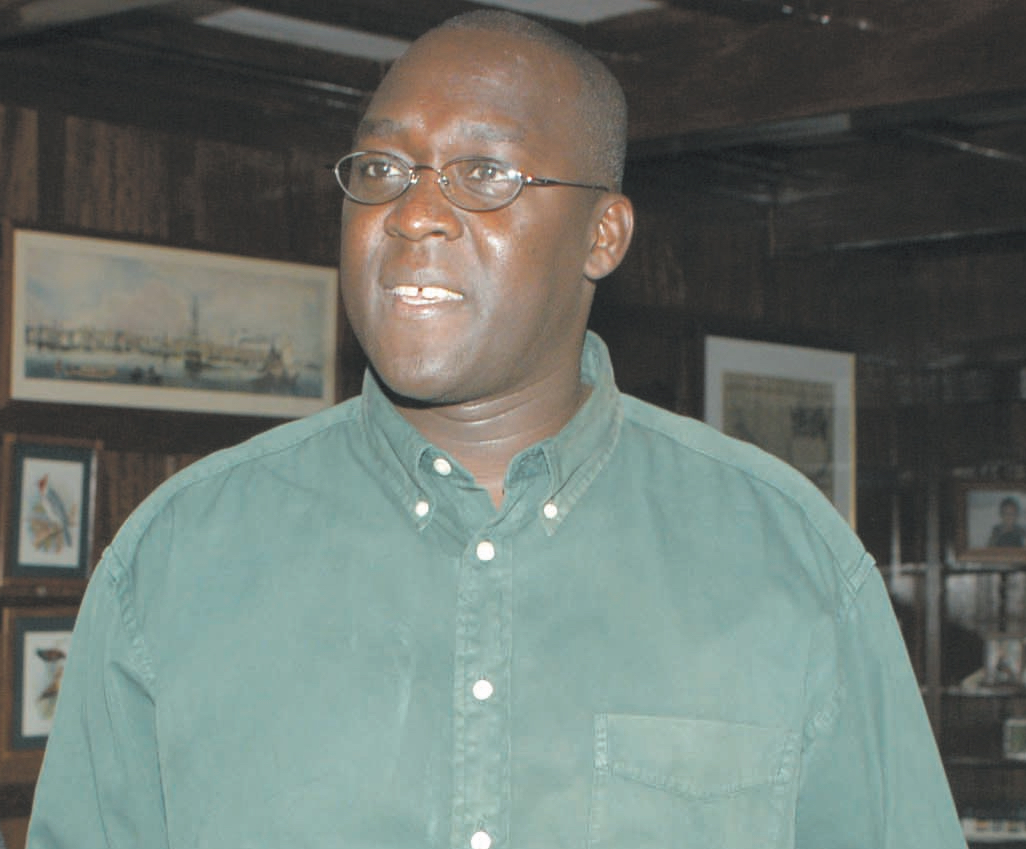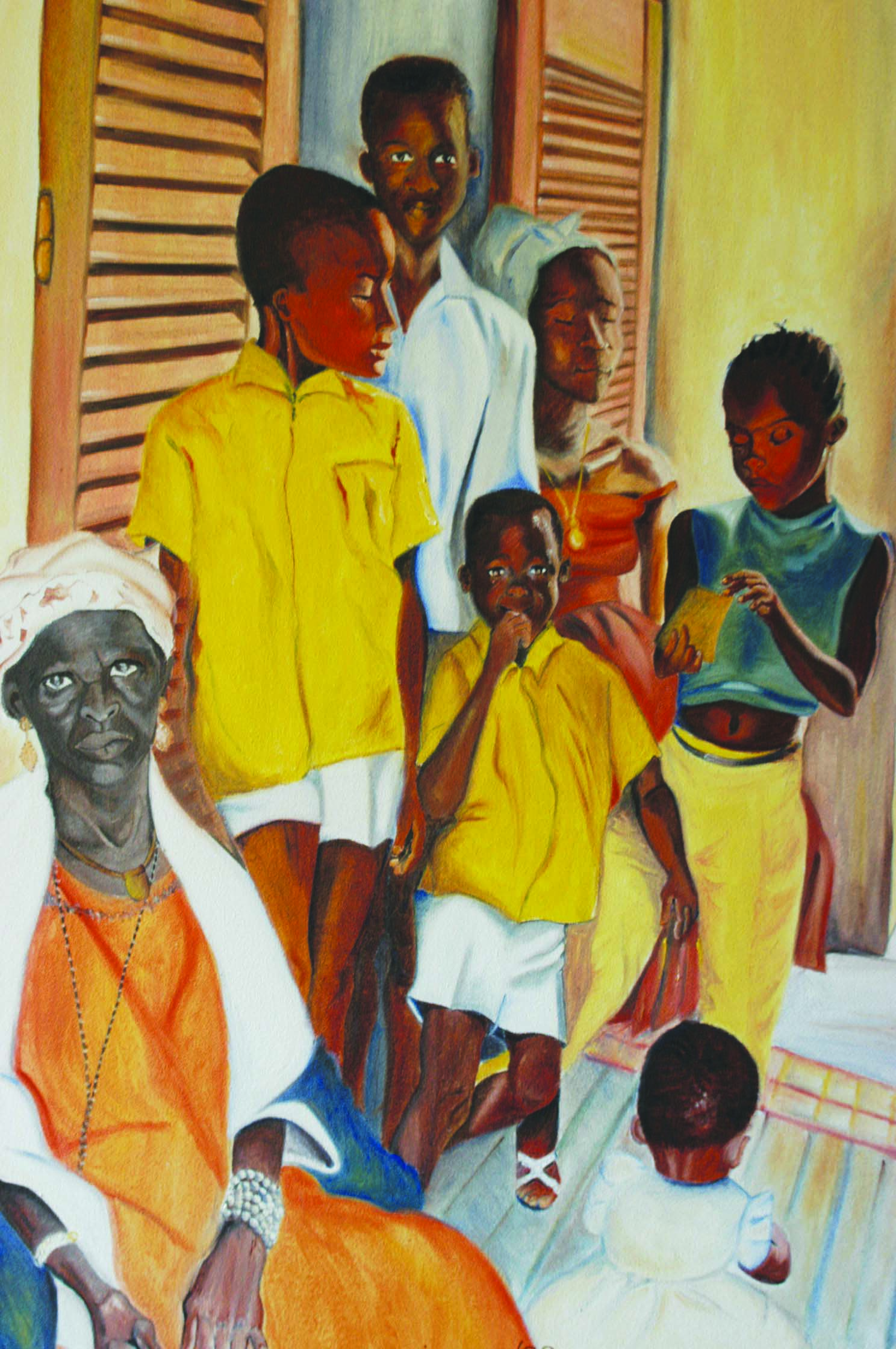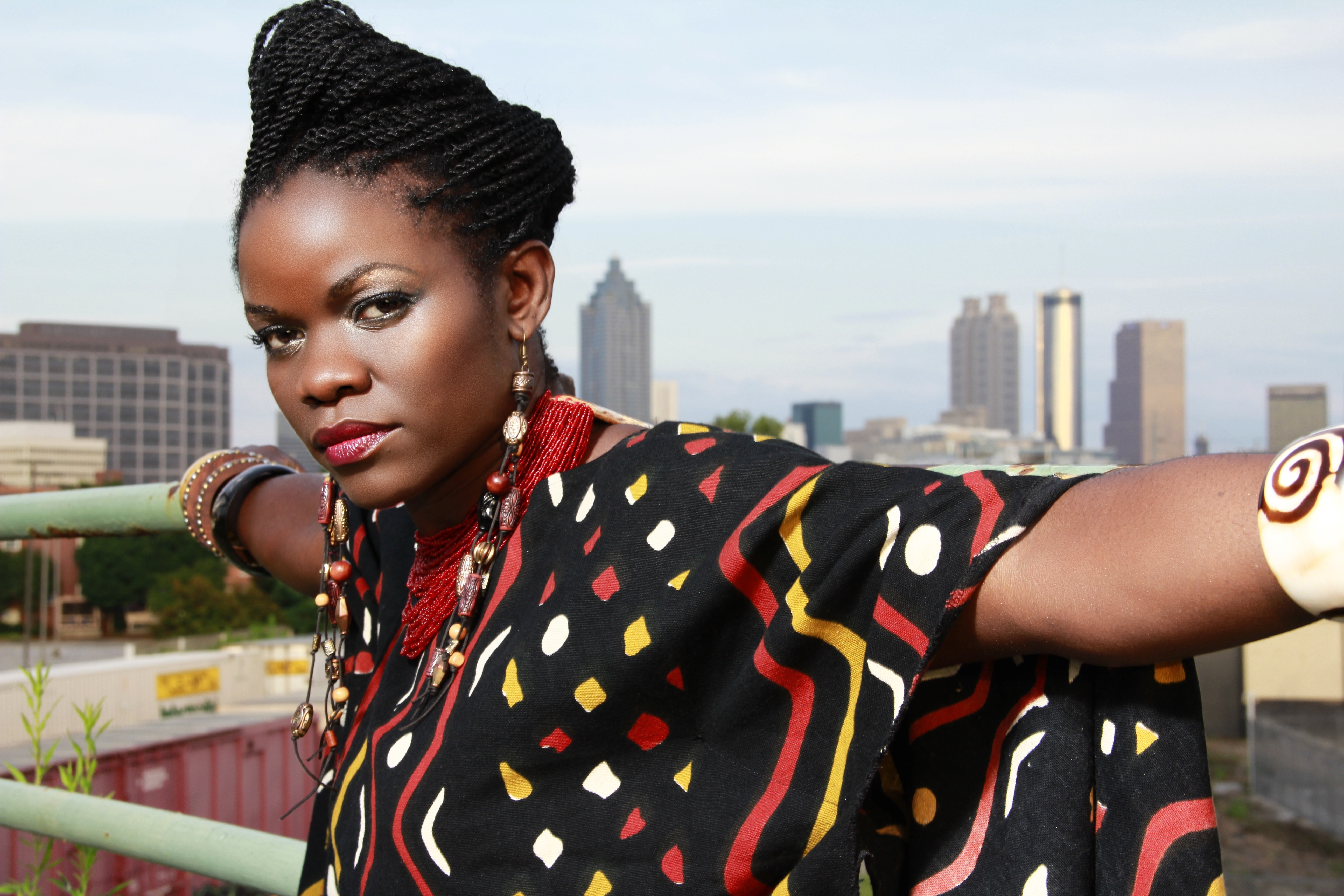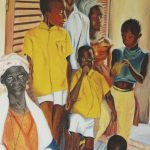
Away from the hustle and bustle of overseeing the activities of one of the most powerful financial institutions in the world, Makhtar Diop, the World Bank Country Director for Kenya, Eritrea and Somalia is a consummate connoisseur of art and many things cultural. A year before he left, I spent some time with him away from his office and writes about the Director’s other passion.
**********************************************************************************
The story began in Dakar while I was having dinner with the President of the Senegalese Music Association Abdoul Aziz Dieng.
It was a lovely evening and the affable President had suggested that we meet at a distinguished seaside hotel called Kilimanjaro to talk about Senegalese music, listen to it and savour their mouth watering cuisine.
It was a splendid idea and as the evening wore off, Aziz, a gifted musician in his own right, Masters in Sociology and currently making music that will be used in children’s rights campaign, started telling us about his own musical career.
He is very knowledgeable and he told us about senegalese musician’s sterling performance on the global scene.
They have an outstanding array of stars and when he started recounting his early days in music, Diop’s name popped up suddenly.
“Do you know Makhtar Diop?” he asked me
“Of course I do,” I answered. “He is the World Bank Director back home.”
“Pass my regards to him when you go back,” he said.
“He is an old good friend of mine. He is also a gifted electric bass guitar player and we really had a great time playing together when we were students in France.”
“Wow,” is all I could manage to say. I was fascinated by this revelation and I told him that I will certainly seek the World Bank head in Kenya, Eritrea and Somalia to find out more about the “bass behind the banker” as it was aptly put by a friend from Cape Town, who’d tugged along.
The World Bank being what it is in the global scene, it is very hard to miss its chief representative in Kenya and I must say that I had seen him several times on television and in newspapers. However, I must confess that I had never imagined that he indulged in classy things like playing music and collecting artifacts. I was so determined to learn more about him and his guitar that getting in touch with him was the first thing that I did when I got back four or five weeks ago.
During my research for this article, I also discovered a few things about the World Bank President, Mr. James Wolfensohn who recently visited Kenya. I was really impressed when I learnt that Mr.Wolfensohn has been closely involved in cultural activities. From 1980 to 1991, he was Chairman of the Board of the famous New York’s Carnegie Hall during that time he led the successful effort to restore the landmark New York building. He became in 1990, Chairman of the Board of Trustees of the John Kennedy Center in Washington and 1996 was elected Chairman Emeritus. In addition, I also discovered that he plays cello and I have been told that he owns one of finest paintings collection.
Diop didn’t have any objection to an interview but before we could sit down, he had to finalise some urgent official business. This is his forte and going by what was reported, he has done his work well.
It was time to see his other side away from the Bretton Wood offices. Aziz had described him as amazing on the bass guitar and I must say I was curious to hear him play. I went to his house with my musical ear wide open but there was more than music in wait.
He is an absolute aficionado of art and almost every corner of his house is adorned by beautiful artwork that also describes his sojourn in other African countries.
There are exquisite masks from Mali, Central Africa and Benin an elegant Nigerian boubou and his dinning table has been innovatively made from the saddle normally tied on camels by the Berbers while crossing the Sahara desert.
His favourite painter is Souleymane Keita an internationally known artist from Senegal whom inspiration ranges from the “Hunter Shirts” from Mali, to the “Scarifications” in Mali and “ Schools of Sardines” from the historical Goree Island. Diop has two magnificent pieces displayed in his seating room that is filled with several other impressive artifacts from around the continent. The room oozes with authentic African art. Diop, a father of one boy, loves art and it was wonderful listening to him talk about Souleymane’s artwork.
However, as the adage goes, behind every successful man their is a woman, Diop also revealed that his wife, Arianna Legovini has been instrumental in putting together all that we saw.
An economist by profession, Arianna is an accomplished artist and her pieces are amazing. Her most striking piece is one that she painted, Diop’s family from an old family photo. It is detailed and it was noticeable that some of Diop’s body language has not changed.

Painting that characterise his love for art and collection
The artwork is elaborate and engrossing and as a side show, we were taken in by it. The main show was his music lair and in not time, he showed it to us and I wasn’t disappointed.
“You are now in my most secret and sacred place,” said the affable and down to earth banker. “This is where I come to replenish my energy; to play and relax and ensure that I am still human.”
It is simple but everything is professionally organised. His two electrical bass guitars were well tuned and he strum a few tunes for us.
Born 43 years ago, Diop confessed that he is a jazz enthusiast and a section of his secret lair was filled with portraits of his favourite legendary jazz musicians that include sax players John Coltrane, Charlie Parker or Wayne Shorter, trumpet players Miles Davis and Lee Morgan, pianists Thelonius Monk, Bud Powell,Bill Evans or Herbie Hancock, singers Billie Holliday, Sarah Vaughan or Bobby Mc-Ferrin, bass players Charles Mingus, Marcus Miller and Jaco Pastorius whom he holds in high esteem because he ‘revolutionised the electric bass guitar’ and others. His approach to music is also an intellectual challenge. Going through his library , I discovered many books on the jazz history, biographies of famous jazz players, on the relationship between music and philosophy such as ‘Goder,Escher and Bach’, ‘Jazz among Discourses’, ‘Representing Jazz’,the ‘Epistrophy’ collection etc… He confesses that one of his love in music would have been to also play saxophone.
A son of a well known human rights lawyer in Senegal, the late Fadilou Diop, Makhtar Diop said that his father loved art and he grew up in an environment filled with arts and culture.
As a result of the late Senegalese President Leopold Sedar Senghor’s proactive cultural policies, Diop was not surrounded by art at home alone. It was a way of life all around him in Senegal.
A brilliant fellow, Diop enrolled in the Grand Ecole in France where he studied finances and economics related course. At 22, he left the University with a masters degree. Upon completion, he returned to Senegal and joined the private sector as a manager in a state-owned bank (since then privatized)and then he was hired into government as a special advisor to the Minister of Finance.
“It was a time when structural adjustment,privatisation, parastatals reforms and liberalization of the economy was taking root,” he said.
He was playing a leading role in the team that was holding negotiations with the International Financial Institutions that, as fate would have, he now represents.
He took a break to go back to school to sharpen his skills, he enrolled for a Masters degree in Economics at the University of Warwick and later on moved to University of Nottingham for PhD studies on ‘Determinant Growth and Investment in Sub-Saharian Africa’.
Later on, he was hired by the IMF and was posted in Washington. He remained in Washington until the opposition parties in Senegal pulled a Narc-style victory and he was recalled back to government.
He was appointed the Minister of Finance in the new administration. Modelled alongside the French format where ministers are not Member of Parliament, Diop was fished from the civil society where he had been a member.
He served as the custodian of the Senegalese government’s purse for one and half year and then the Bretton Woods came calling once again. He was hired by the World Bank for his current position, he took up his position in Nairobi amidst all the hue and cry that the previous regime levelled at the two Bretton Woods institutions.
A bright and resourceful professional, he weathers the storm and all the challenges—and they are numerous— that come with his position.
A dedicated husband and father, Diop finds solace in his immediate and extended family.
His other passion—music, also gives him the relief to face the
challenges of his work.
He discovered his musical interest while in France,at the end of the 1970’s. Paris was then a hub for many different cultures and music was quite popular. Aziz and him started taking music lessons in jazz music and they have been friends ever since.
His eyes lit up as he recalled his memorable days in Paris when reggae had just exploded into the international music arena, plenty of funky music and the new trends in jazz music that stole his heart.
“I was drawn into jazz and I took private lessons to sustain my interest and understanding in it,” he explained. “I hired a private jazz tutor to be able to read the music and have the capacity to practice on my own.”
Once he started working, it was clear that he would work in the private sector and he had to try and find time for his musical interest. He wanted to be in a position where if he were to perform with others, they would take minimal time to rehearse together because of the nature of their work. This has worked well for him. “We had a jazz band while I was with the IMF in Washington with some colleagues from the World Bank, it was a challenge to play between two missions. There also was a blues band at the IMF led by an Associate Director, which will perform at every Christmas Party” he explained.
He finds satisfaction in all the financial gymnastics that come with profession but his soul food is in his music. It stimulates creative ideas and a different way of looking at life.
Apart from jazz, he loves mbalax music from his native country. Salif Keita from Mali is his favourite African singer. He also likes other African musicians like Souleymane Faye, Youssou N’Dour, Baaba Maal,
Coumba Gawlo and Ismael Lo from Senegal, Richard Bona from Cameroon, Cesaria Evora from Cape Verde, Hugh Masekela from South Africa, Papa Wemba’s album Emotion and others.

He occasionally teams up with friends for a gig and these are always happy moments for him. By chance, he met in the international community in Nairobi other very talented professionals-musicians with the same passion and they put together a small jazz trio they named for fun “Con’fusion” – the keyboard from Norway is a Division Chief at UNEP and the drummer also from Senegal is an economist at UNEP. The name of their band was chosen in reference to their cultural mix and their love for jazz fusion. Diop, had the opportunity to interact with some of the leading Kenyan artists and was very much impressed with the wealth of talents and he mentioned to me artists such as Gido, Suzanne, or Mercy Myra among others.
He is not the only one in his family who is hooked to music. His younger brother Moustapha Diop, who is an IT engineer is also an accomplished guitarist. Moustapha runs a computer center certified by Microsoft in Dakar.
He has produced his debut afro-jazz CD titled Jaam (Peace) that Diop played for me. He has also composed most of the songs contained in the album and it is a lovely compilation that comments on various pertinent social issues.
Diop loves culture and the arts and while he was in government, he helped initiate a number helpful ventures that were aimed at stimulating the growth of the music industry that he believes has the potential to employ many people and generate revenue.
He recommended the removal of taxes on musical instruments and all other equipments that were often smuggled into the country. This measure ,which had no impact on revenue, has helped in a musical explosion from Senegal that Aziz so aptly described. Dakar now hosts some of the best state-of-the-art music studio in the whole of West Africa. Diop’s view was that musical instruments are also an important source of cultural, intellectual and economic development which was the rationale that led Sedar Senghor back in the 70’s to suppress all import taxes on books.
While he was Minister, he appointed a team from their revenue authority that worked closely with the stakeholders in the music industry to advise them on taxation and to simplify the process of filing their returns.
As Aziz remarked, Makhtar is great on the guitar. He hopes to continue strumming his guitar because it provides him the balance between his very heavy workload and the small normal things that we all love and indulge in.

